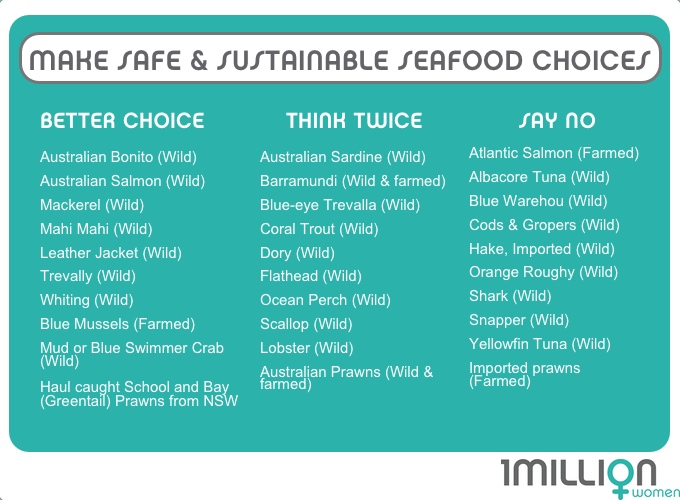In Australia, the sale of seafood over the next week is predicted to be 10 times those of an average week.
The lead up to Easter Weekend is the second-biggest week after Christmas for the Seafood industry, so it's important to make sustainable choices.
Last week I attended MSC's Sustainable Seafood Day. To be perfectly honest, I believe there is no such thing as 'sustainable' seafood. Fishing has a significant impact on our oceans because it literally removes the biomass from marine ecosystems. Excessive fishing impacts on other species too and can have a knock-on effect on the whole marine ecosystem.
It is important that if you are going to eat seafood you make the right choices and support the people who are making the effort to do the right thing, so they can continue to do so.
The MSC operates a certification and ecolabel program based on a scientifically robust standard for assessing whether wild-capture fisheries are ecologically sustainable and well-managed.
The Marine Stewardship Council has put together this infographic to show how certified sustainable labelling has made a positive difference in our oceans.

Make sure you keep your eye out for the MSC certification label on pre-packaged seafood, including pet food!
Here are some more tips to help you make a better choice
- Do your research: There is a wealth of information online about overfishing and sustainable seafood choices. Do some research, and this will prepare you to make better choices. Many people believe for example that buying local species is more sustainable than imported ones, but this is not always the case, so make sure you know the facts about what you are going to buy.
- Ask before you buy: Starting a conversation about where the fish came from is incredibly important. Even if a retailer doesn't have the answer, the more times they are asked such questions will create a ripple effect back to the top of the supply chain about what customers want. Ask questions like; "Is the species overfished?", "How was it caught or farmed?", "Where is it from, local or imported?". This applies to restaurants when you're eating out too.
- Say no: Do not buy overfished species, or species that are caught or farmed in a way that is harmful to the environment. For example, fishing methods that have a lot of bycatch of other marine wildlife. You have the consumer power to make a better choice.


